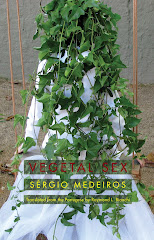
http://press.uchicago.edu/ucp/books/book/chicago/L/bo12620076.html
Italy is an enigma for many of us especially those of us who come from it as part of the great Italian Diaspora. We are fortunate to have in the United States poets who represent this diaspora well starting with John Ciardi, Paul Vangelisti, Leslie Scalapino and Peter Gizzi. But perhaps our best scholar of poetry from the Italian idiom is University of Chicago professor Jennifer Scappettone and her translations of Italian poet Amelia Rosselli is something to behold.
I write this blogpost as a translator and poet myself and I know that the work of translator can be a challenge that is sometimes like wearing shoes on the wrong foot or too tight clothes. But, I have never translated Italian poets because of the fact that the language and the poetry is too personal and I could never do it justice. Scappettone has overcome this to bring us an important poet in English and the translations are in fact- Italic- which is a tribute to fine craft.
By way of biography Amelia Rosselli was the child of exiles from Italian Fascism and grew up in the France and the US. Her family then returned to Italy after the war. She is part of a heroic Italian resistance to Fascism that in fact is uncomfortable to many Italians. I say can with certainty that many families were divided because mine was torn thus.
As the descendant of Italian Fascists and also Italian Partisans myself I have lived this tension in my own life and Scappettone using Rosselli's poetry brings this tension to light in these translations.
On Page 81 in her translation;
For the singing that unwound in the air I rhymed
still utterly. For the vulture that was your sinister
figure I was determined to fight. For the poor and the ill
the ill streets I sand still tarantella for your shirt
is the loveliest of the street.
To bring a translation of this type of poetry to light today is a grand critique. The Italy of today filled with vapid Berlusconisms is not open to much of this work. Italy where many view the Fascist period with nostalgia and where Mussolini souvenirs are available this translation is a great response. The translation itself comes as close to the Italian as possible and makes for a strong cool wind amid so much sadness. As an Italian speaker it is so close to the music of the poetry that I can assure you hear its voice.
Scappettone gives us more than just poetry however. She also gives us prose which is so often neglected. The Diary of Three Tongues deserves to be placed with Witold Gobrowitz Diary as one of the greatest reflective pieces of the 20th century and her correspondence included makes me want to find more of this as I love letters by poets. Rosselli is an acquired taste but I would urge readers to take that chance and find that like other acquired tastes it is worth the education.
In the end what Scappettone has done is to bring us a great Italian poet who was more than just that because of her international formation. In a time when Italy seems to be numb to the heroic tradition of Poets in her midst perhaps this book will expose the "good Italy" to and her "ideal fatherland" in a world that seems to be drawn ever more towards blackness.
This book is worth the read and sit down. Make sure that you have strong drink beforehand perhaps something Italian like Sambuca Molinari and let it seep into your bones.



